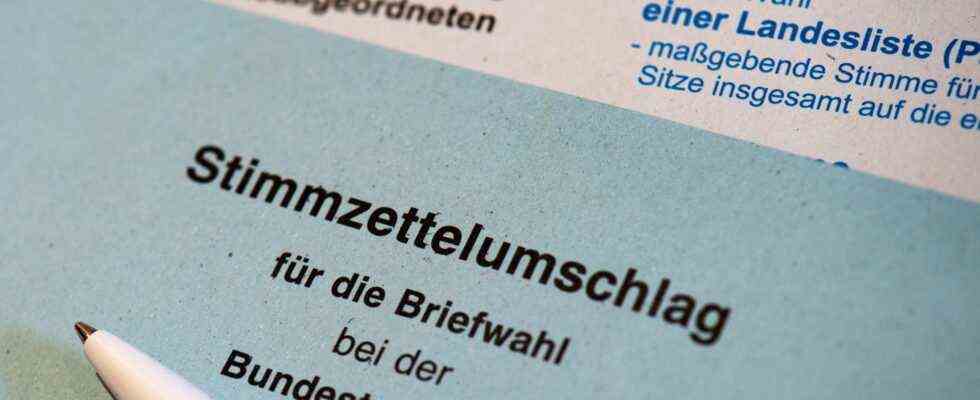Status: 07/14/2021 8:57 a.m.
The hot phase of the election campaign is also beginning for the authorities – they have to protect the election against disinformation, fake news and propaganda. They are presenting the measures today with Interior Minister Seehofer.
By Björn Dake,
ARD capital studio
Stephan Brandner doubts that everything will be right in the federal election. The AfD member of the Bundestag sees the danger that the vote can be manipulated. Postal ballot boxes stand around in town halls for weeks, he says. “Nobody knows what will happen to it,” says Brandner.
Voting fraud through open postal ballot boxes? Federal Returning Officer Georg Thiel disagrees. “These ballot boxes for postal voting are just as secure as they are secured in ballot boxes.” The Federal Returning Officer has been fighting against Fakenews for months. For example, he explains that a hole in the ballot or a missing corner does not invalidate it. They are tactile aids for the blind and visually impaired.
Corona worsens security situation in election year
To see doubts about the orderly process of the election through disinformation – that is a danger to the security of the Bundestag election. Another: cyber attacks. Arne Schönbohm from the Federal Office for Information Security (BSI) sees this as a particular challenge in this election: “The IT security situation in the election year 2021 is possibly more threatening than usual.”
The corona pandemic has accelerated digitization. And thus also the gateways for technical manipulation. For example, attackers try to get access data for private e-mail accounts from members of the Bundestag through fake e-mails.
Politician accounts are the biggest weak point
The cybersecurity expert Julia Schuetze considers poorly protected accounts of politicians, employees and their families to be the greatest weaknesses. In an interview with BR24 she says: “Malicious actors, including intelligence services, are concerned with discrediting people or promoting social divisions. That is a motive to disrupt the decision-making process in the election campaign phase.”
Schuetze works for the think tank Foundation New Responsibility. It recommends legal requirements for cybersecurity and a fixed budget for them for the parties. The protection of the accounts is still left to the politicians alone.
BSI relies on a direct line to social networks
Reports to the Federal Office for Information Security are voluntary. This advises and can intervene around the clock. According to BSI boss Schönbohm, there is a kind of “red telephone” for the large Internet platforms such as Facebook, Google or Twitter. If something builds up there, you can react quickly.
The security authorities are mainly preparing for election day on September 26th. Then the election results are encrypted and reported to the federal returning officer via an internal network. This should protect against manipulation and failures. Wrong results, says Federal Returning Officer Thiel. “In the end we have an analogous choice in Germany.” Postal votes would be suspended for several years. So they can be checked afterwards.
Publicity and transparency should prevent disinformation
In the 2017 federal election, 195 electoral districts were counted again. 195 out of 89,000 electoral districts in total. Anyone can join the counting without registering. Election workers counted almost 47 million votes four years ago. Mistakes happen in the process. But the difference between the preliminary result on election night and the final result three to four weeks later was just under 9,000.
The numbers of the Federal Returning Officer are intended to create confidence that everything will go well when the vote is taken. Security in the federal election does not just mean fending off hackers.
Fakenews and cyberattacks: How secure are the federal elections?
Björn Dake, ARD Berlin, July 14, 2021 6:40 am

